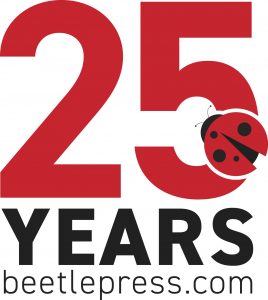Working Weavers Organization to Host 2022 Studio Trail

Weavers’ studios from Florence to Shelburne Falls open to the public on Oct. 22 and 23 from 10 a.m. to 5 p.m.
FLORENCE—The Working Weavers organization will host its fourth Studio Trail tour on Saturday, Oct. 22 and Sunday, Oct. 23, with 10 weavers from Florence to Shelburne Falls and Conway in between opening their studios to the public for demonstrations and sales.
Studios will be open from 10 a.m. to 5 p.m.
“We are weavers dedicated to bringing handwoven textiles into the future,” said Paula Veleta, one of two founding members of Working Weavers. “Our mission is to make cloth visible again by producing and selling high-quality textiles as well as by presenting the process and the people who make weaving their livelihood. We picked October for the Studio Trail because it’s fall foliage season—a nice time of year to drive from one end of the Valley to the other.”
The organization’s website at workingweavers.com offers suggested routes for traveling to the various studios and interesting stops along the way, including restaurants, pubs, inns, and local attractions. The information can be easily printed from a PDF on the site, and guests can also RSVP if they choose.
Trail stops, from Shelburne Falls south to Florence, are at these weavers’ studios:
- Peggy Hart and Western Mass Fibershed, 8 Martin Road, Shelburne Falls. A production weaver who mass produces her cloth on mechanical looms, Hart is the founding member of the Western Mass Fibershed and author of “Wool: Unraveling an American Story of Artists and Innovation.” She designs, produces, and markets blankets.
- Emily Gwynn and guest weaver Lisa Bertoldi, 124 North St., Shelburne Falls. Gwynn’s business, Hands to Work Textiles, focuses on fine table linens influenced by both traditional and mid-century Scandinavian design.
- Sue McFarland, 49 Conway St., Shelburne Falls. McFarland’s studio, in the former Lamson Cutlery Factory in Shelburne Falls, features chenille tapestry scarves.
- Lisa Hill and guest weaver Trish Colson-Montgomery, 156 Elmer Road, Conway. Hill, the master weaver behind the business Plain Weave, is a teacher, designer, and writer who works out of her 1840s barn in Conway.
- Scott Norris, 20 Wilder Place, Florence. Norris, of Elam’s Widow, weaves exclusively hand-dyed fine linen for table and kitchen use.
- Chris Hammel, 221 Pine St., Studio #315, Florence. Hammel is a scholar, teacher, and master weaver who directs the Hill Institute and operates her studio, Ekphrasis Defined Designs, where she creates exquisite textiles for use in home or to wear.
- Paula Veleta and her guest, Judi Bajgot, 221 Pine St., Studio #338, Florence. Veleta, of Studio 338 Handwoven, produces woven fabrics in her studio at the Arts & Industry Building in Florence, using the intricately designed textiles to create household adornments such as wall hangings and pillows.
Veleta, of Florence, said one of the Working Weavers mantras is, “Making cloth visible again.”
“It’s something all of us use, but we take it for granted and don’t realize how it’s produced,” she explained. “During the tour, we offer information on the history of woven cloth. It’s connected to human existence and has a very old history. We like to bring it to peoples’ attention again.”
Most of the professionals in the group are handweavers who use traditional wooden looms with no mechanization. “As weavers, we’re really interested in the process. There’s a lot of steps to weaving and designing a fabric,” Veleta said.
She noted that, typically, a weaver will use a computer program to design a particular pattern for the fabric, and then create it on the loom in a painstaking and time-consuming process.
“When it’s all completed, it could be ten yards long. It gets cut off the loom and wet-finished—basically washed and dried—and then it’s made into things like linens, pillows, hand-hemmed kitchen towels, or blankets with finished edges,” she said. “We have to think about all the different aspects of creating cloth.”
In 2016, Veleta and a colleague, Marilyn Webster from Conway, founded Working Weavers, and in 2017, they hosted the first Studio Trail, modeled after pottery tours that are hosted in the Valley.
The Studio Trail was also held in 2018 and 2019, going on hiatus during the height of the pandemic. “We’re excited to be doing it again,” Veleta said, noting most of the original group of weavers will be involved this year.
The tour typically generates about 1,000 visitors.
For more information, or to sign up for the 2022 Studio Tour, contact Veleta at [email protected] or 413-320-0808, or visit the website at www.workingweavers.com/.




